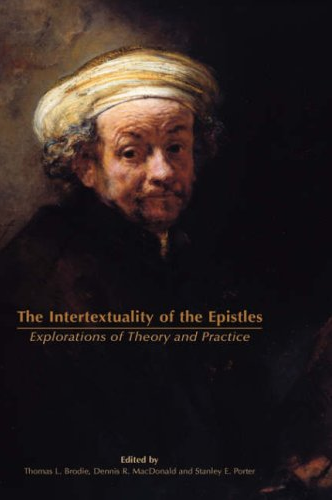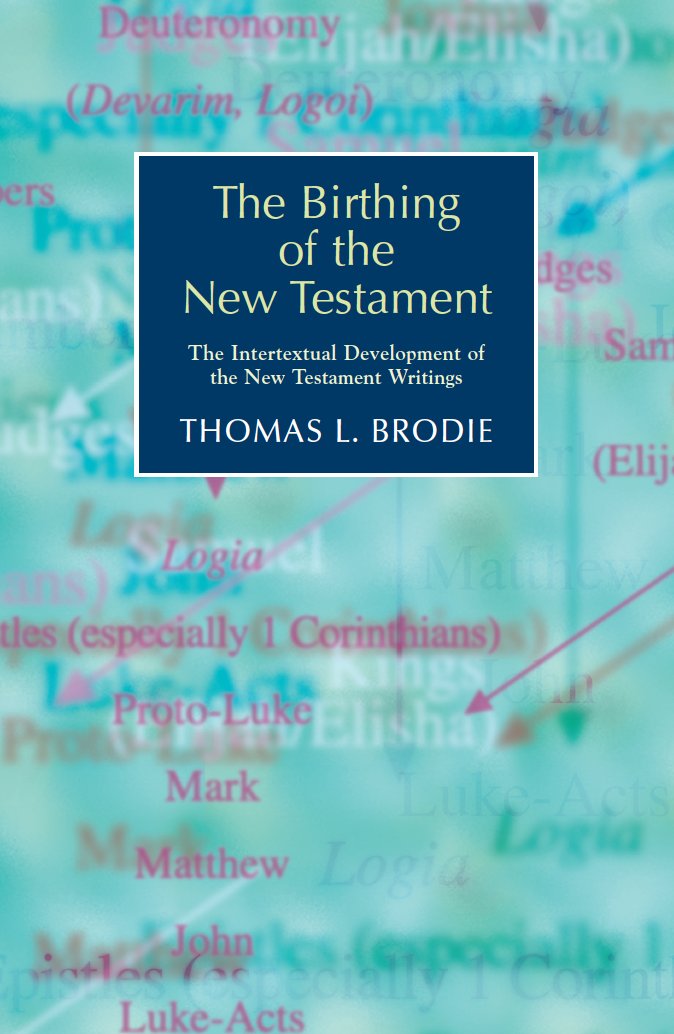Beyond the Quest for the Historical Jesus: Memoir of a Discovery
Published: Sep 2012
£18.95
In the past forty years, while historical-critical studies were seeking with renewed intensity to reconstruct events behind the biblical texts, not least the life of Jesus, two branches of literary studies were finally reaching maturity. First, researchers were recognizing that many biblical texts are rewritings or transformations of older texts that still exist, thus giving a clearer sense of where the biblical texts came from; and second, studies in the ancient art of composition clarified the biblical texts' unity and purpose, that is to say, where biblical texts were headed.
The primary literary model behind the gospels, Brodie argues, is the biblical account of Elijah and Elisha, as R.E. Brown already saw in 1971. In this fascinating memoir of his life journey, Tom Brodie, Irishman, Dominican priest, and biblical scholar, recounts the steps he has taken, in an eventful life in many countries, to his conclusion that the New Testament account of Jesus is essentially a rewriting of the Septuagint version of the Hebrew Bible, or, in some cases, of earlier New Testament texts. Jesus' challenge to would-be disciples (Luke 9.57-62), for example, is a transformation of the challenge to Elijah at Horeb (1 Kings 19), while his journey from Jerusalem and Judea to Samaria and beyond (John 2.23 —4.54) is deeply indebted to the account of the journey of God's Word in Acts 1 —8.
The work of tracing literary indebtedness and art is far from finished but it is already possible and necessary to draw a conclusion: it is that, bluntly, Jesus did not exist as a historical individual. This is not as negative as may at first appear. In a deeply personal coda, Brodie begins to develop a new vision of Jesus as an icon of God's presence in the world and in human history.
Beyond the Quest for the Historical Jesus: Memoir of a Discovery
£18.95
In the past forty years, while historical-critical studies were seeking with renewed intensity to reconstruct events behind the biblical texts, not least the life of Jesus, two branches of literary studies were finally reaching maturity. First, researchers were recognizing that many biblical texts are rewritings or transformations of older texts that still exist, thus giving a clearer sense of where the biblical texts came from; and second, studies in the ancient art of composition clarified the biblical texts' unity and purpose, that is to say, where biblical texts were headed.
The primary literary model behind the gospels, Brodie argues, is the biblical account of Elijah and Elisha, as R.E. Brown already saw in 1971. In this fascinating memoir of his life journey, Tom Brodie, Irishman, Dominican priest, and biblical scholar, recounts the steps he has taken, in an eventful life in many countries, to his conclusion that the New Testament account of Jesus is essentially a rewriting of the Septuagint version of the Hebrew Bible, or, in some cases, of earlier New Testament texts. Jesus' challenge to would-be disciples (Luke 9.57-62), for example, is a transformation of the challenge to Elijah at Horeb (1 Kings 19), while his journey from Jerusalem and Judea to Samaria and beyond (John 2.23 —4.54) is deeply indebted to the account of the journey of God's Word in Acts 1 —8.
The work of tracing literary indebtedness and art is far from finished but it is already possible and necessary to draw a conclusion: it is that, bluntly, Jesus did not exist as a historical individual. This is not as negative as may at first appear. In a deeply personal coda, Brodie begins to develop a new vision of Jesus as an icon of God's presence in the world and in human history.
The Intertextuality of the Epistles: Explorations of Theory and Practice
Published: Oct 2006
£55.00
The international conference held in Limerick, Ireland, in May 2005 produced far more than the usual collection of loosely related papers. Rather, this volume from the 17 contributors demarcates and organizes a whole field, serving as an indispensable introduction to intertextuality in general, and as an original examination of the topic in relation to the New Testament epistles.
The Intertextuality of the Epistles: Explorations of Theory and Practice
£55.00
The international conference held in Limerick, Ireland, in May 2005 produced far more than the usual collection of loosely related papers. Rather, this volume from the 17 contributors demarcates and organizes a whole field, serving as an indispensable introduction to intertextuality in general, and as an original examination of the topic in relation to the New Testament epistles.
The Birthing of the New Testament: The Intertextual Development of the New Testament Writings
Published: Nov 2004
£22.50
Many are saying that the prevailing paradigm of New Testament origins is going nowhere. In its place, Brodie’s stunning book invites us to suspend all ‘knowledge’ we already have about the history of the New Testament’s development, and to be willing to entertain the following thesis.
Everything hinges on Proto-Luke, a history of Jesus using the Elijah–Elisha narrative as its model, which survives in 10 chapters of Luke and 15 of Acts. Mark then uses Proto-Luke, transposing its Acts material back into the life of Jesus. Matthew deuteronomizes Mark, John improves on the discourses of Matthew. Luke–Acts spells out the story at length. Add the Pauline corpus, the descendant of Deuteronomy via the Matthean logia, and the New Testament is virtually complete.
This is a totalizing theory, an explanation of everything, and its critics will be numerous. But even they will be hugely intrigued, and have to admit that Brodie’s myriads of challenging observations about literary affinities demand an answer.
The Birthing of the New Testament: The Intertextual Development of the New Testament Writings
£22.50
Many are saying that the prevailing paradigm of New Testament origins is going nowhere. In its place, Brodie’s stunning book invites us to suspend all ‘knowledge’ we already have about the history of the New Testament’s development, and to be willing to entertain the following thesis.
Everything hinges on Proto-Luke, a history of Jesus using the Elijah–Elisha narrative as its model, which survives in 10 chapters of Luke and 15 of Acts. Mark then uses Proto-Luke, transposing its Acts material back into the life of Jesus. Matthew deuteronomizes Mark, John improves on the discourses of Matthew. Luke–Acts spells out the story at length. Add the Pauline corpus, the descendant of Deuteronomy via the Matthean logia, and the New Testament is virtually complete.
This is a totalizing theory, an explanation of everything, and its critics will be numerous. But even they will be hugely intrigued, and have to admit that Brodie’s myriads of challenging observations about literary affinities demand an answer.





